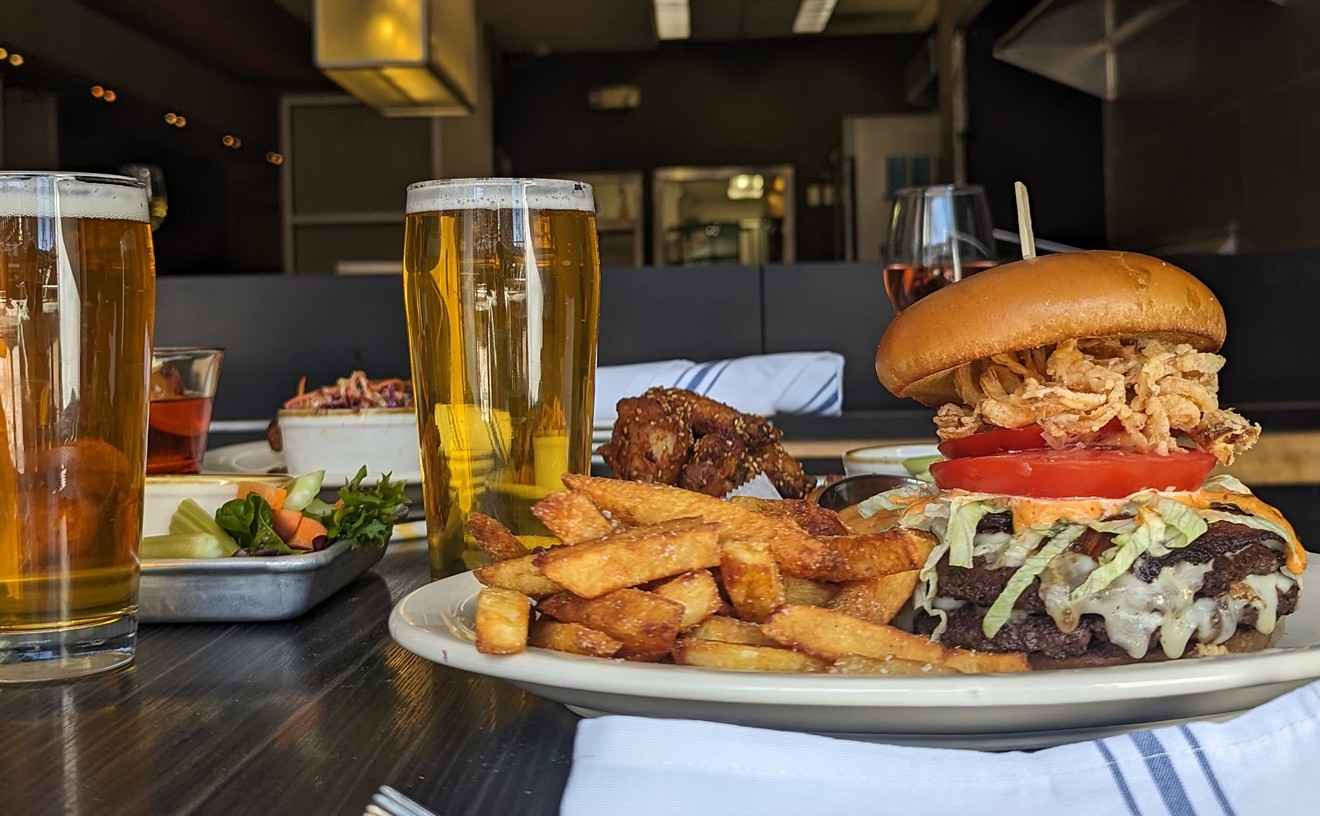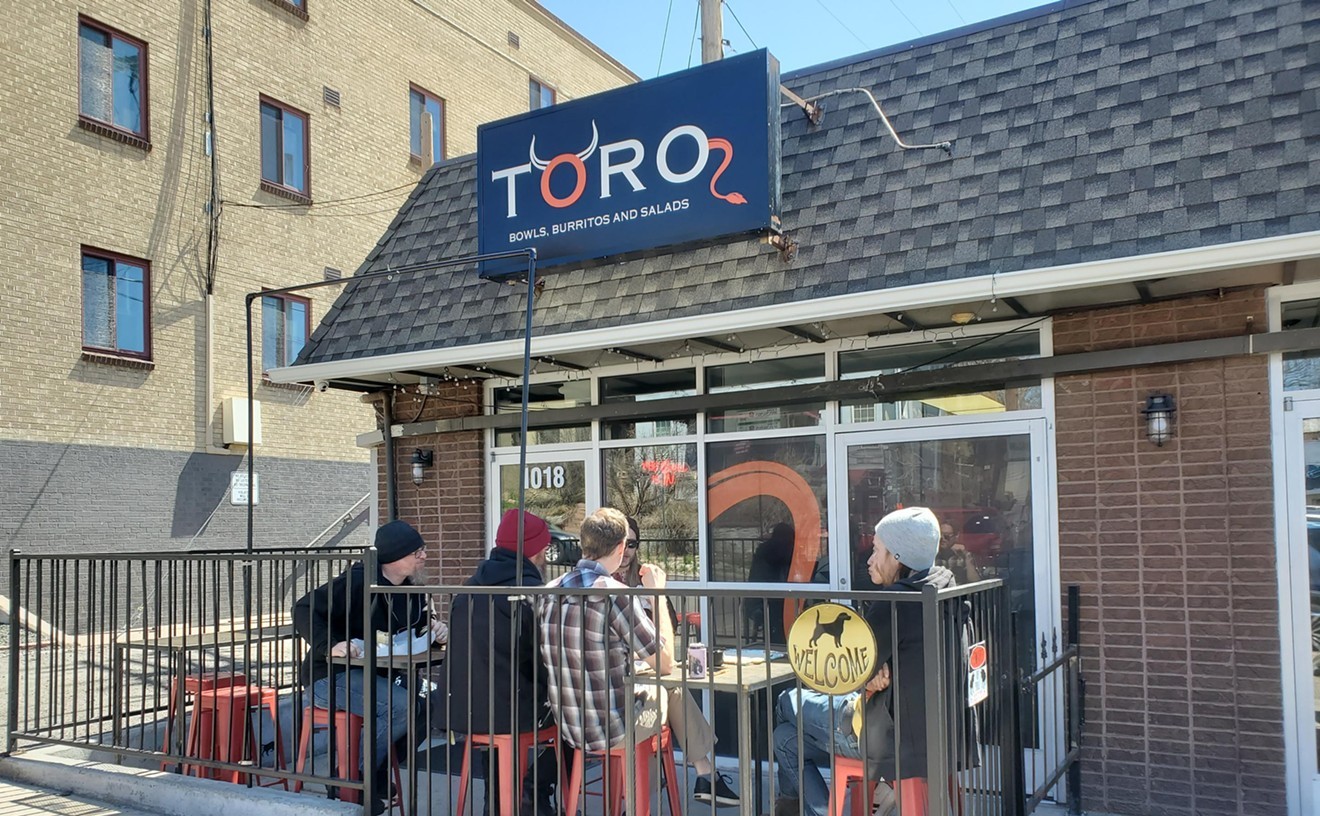The Rite is the latest of at least a dozen widely released American movies in half as many years with demonic possession a major plot point. This doesn't mean the subject is wrung out; its continuing resonance with audiences hasn't been effaced by secular pop psychology or modernization within the church. It does, though, mean that any new attempt must come with a hook.
For one: Prefaced with a quote from Pope John Paul II, The Rite, set in a specifically Catholic milieu, courts believers. Also, in the character of Father Lucas, it introduces the exorcist as a workaday, house-calls healer. (As Lucas, Anthony Hopkins is disarmingly distracted, softly authoritative, and given to prancing when the role takes a bipolar turn.) "What'd you expect? Spinning heads, pea soup?" he asks a novice, young Michael Kovak (Colin O'Donoghue). Michael, whose initiation into exorcism propels the plot, is introduced working in his family's mortuary in a small-town, dead-end America shown in a few shorthand shots. Needing a ticket out, he chooses seminary school, despite having no apparent surplus of faith or zeal. "Four Years Later," still not having developed the required vocational feeling, he's ready to leave, but is talked into visiting Rome for a trial run in an exorcist training program. Here Michael begins his apprenticeship to Lucas, a Welsh Jesuit tending to the daily exorcism needs of Roman families. Watching Lucas on his rounds, Michael clings to his doubt — even when viewing a contorted patient who plays a game of Twister without the mat — becomes fluently profane in foreign tongues, and coughs up iron nails.
The Rite is based on a book by Matt Baglio, documenting the true story of the initiation of fifty-something Reverend Gary Thomas of Los Altos, California, as an exorcist. Thomas and Baglio apparently weren't a sufficiently "box office" duo, so the film introduces Michael to Angeline (Alice Braga), a journalist investigating exorcism who's sitting in on one of his classes, where they begin dialogue and a mild flirtation — one of several reassurances to the viewer that celibate Michael is heterosexual.
Initial efforts to de-familiarize the material stop well before Michael has stepped up for his part in a climactic spiritual tug-of-war — with no pea soup, but its own 21st-century shlock effects. O'Donoghue, up to this point a functional protagonist, darkly handsome in a clerical collar, doesn't demonstrate the authority to throw someone out of his house, much less dispel Satan's minions. His opponent is every bit his lightweight match. Depending on one's prejudices, belief in demonology may be thought adolescent; as finally manifest in The Rite, demons are literally juvenile. Affecting a Valley-girl inflection, remembering Michael as "a little boy pooping in his pants" and mocking his crush on Angeline — in words carefully within the bounds of a PG-13 rating — Michael's nemesis comes off as a nasty older sister.
Director Mikael Håfström's foot-dragging pace makes a pretense of intent character study, but Michael's spiritual trials are occluded by Michael Petroni's patchy screenplay. As Michael clings to his skepticism before manifestations of the inexplicable, The Rite never brings the viewer onto his seesaw of doubt. Michael's own "demons" are suggested via flashbacks of a walking-dead father (Rutger Hauer), a literally dead mother, and the undertaker's slab. But his motivations remain arbitrary and inscrutable, right down to his entry into the seminary. This is brought up by a number of characters, who interpret his implausible career decision as A Sign. It is...of bad writing.










